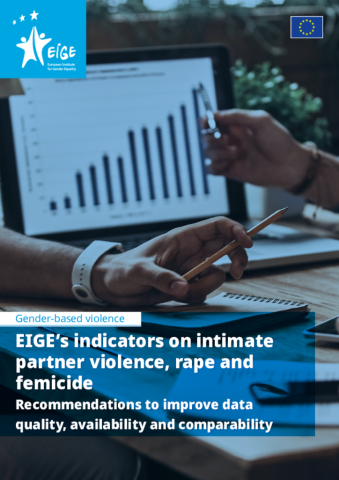This report provides recommendations to the Member States of the European Union and the United Kingdom to improve the quality, availability and comparability of data on intimate partner violence against women, based on a thorough review of the work on the 13 police and justice indicators carried out by EIGE since 2017.
These indicators were selected based on their planning and monitoring policy relevance and on data availability and completeness. High-quality administrative data that is available and comparable is key to understanding the scale of intimate partner violence in the EU and monitoring progress on tackling it.
For these purposes:
- Data needs to be disaggregated into crimes committed against intimate partners and those committed against other categories of victims. The development of a comparable system for classifying and counting crimes against intimate partners is therefore crucial and will be promoted as a matter of priority.
- There is a general lack of detailed information across Member States on victims (sex of victim, age of victim) and victim–perpetrator relationship (at least for IPV, if not domestic violence) in police data and especially in justice data. Therefore, to ensure the feasibility of developing a comparable system, it is important that certain requirements for data collection be prioritised and others relaxed.
In order to promote comparable data collection, it is important to address the issue of the rules and units used in counting. The question of how to treat multiple offences is especially important, namely whether to count all offences or only the most serious offence. Recording repeat offences as a single offence can be problematic, as it limits data on repeated victimisation.
In criminal justice statistics, attrition and conviction rates are important benchmarks. According to the various legal requirements, data on the conviction rates for IPV should be central to data collection, which requires comparable categories, counting units and counting rules.
The prioritisation of certain EIGE's indicators in these recommendations is based on the following guiding principles:
- theoretical and data consistency considerations
- policy relevance
- data availability
